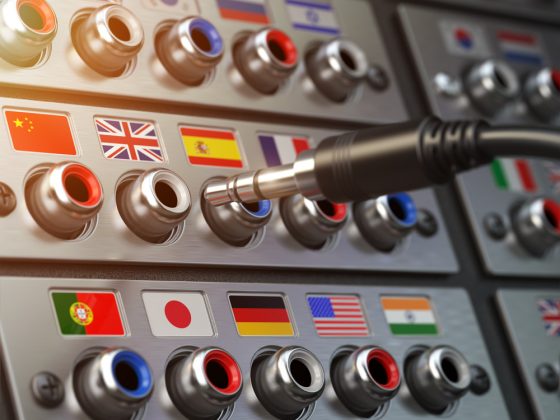Are the Dutch now native speakers of English, and is Dutch-English a distinctive thing? Deborah Nicholls-Lee meets linguistics expert Alison Edwards to find some answers. English is no longer a foreign language in the Netherlands, asserts Leiden University’s Alison Edwards, who has published widely on the subject. ‘If you can assume that you can walk down the street and that the hairdresser will be able to speak to you in English, and the bus driver, and the taxi driver, then functionally it’s a second language not a foreign language.’
This view is perhaps unsurprising. The Dutch speak, it is claimed, the best English in the world. They often prefer speaking English when foreigners try to practise their Dutch, and the higher education sector here is rapidly being anglicised, with more than half of all university courses now taught in English.
Distinctive
Despite all the accolades, Dutch-English is distinct – in grammar, idiom, and accent – from the language used by native speakers, and this has divided opinion. On one side, liberal academics have spent a long time validating new forms of English and rejecting an imperialistic view of linguistics. After all, there are now more non-native speakers of English than native, and even mother tongue speakers use a huge variety of forms.
But even the Dutch themselves aren’t persuaded. ‘It’s a well-meaning idea, this idea of democratising English in different places,’ says Edwards, ‘but people don’t seem to want it. If you ask Dutch people, do you prefer to aim for British English or Dutch English? They will always say British English and they are really critical of anything that sounds Dutch-English or has a strong Dutch accent.’
Source: www.dutchnews.nl
